Eric Bols was the son of Lt. Gen. Sir Louis Bols, a distinguished General of The First World War.
He was educated at Wellington College and Sandhurst. Afterwards he was commissioned into the Devonshire Regiment in 1924. Then in 1935 he was given accelerated promotion into The King's Regiment. He had shown his ability as a staff officer during the days before the Normandy invasion and then, as commander of troops, in the Bridgehead.
When appointed to command the 6th Airborne Div. he, at once set out to turn himself into an Airborne soldier. In a remarkably short time he got to know, well. all the units of his Division and gained the respect and affection of their officers and men.
He did not have long to wait before all he had crammed into a short but intensive period was put to the test. In December 1944, the massive German counter offensive was launched into the Ardennes and a dangerous breach had been created in the American positions in that sector. The Allied front was threatened. The 6th Airborne Div., now back in England and training for their next operation, was ordered, at virtually no notice, together with other British and US formations, to move to the Ardennes to help to block the gap and restore the position.
This was a tough assignment for the new Divisional commander. The German offensive, however, was thrust back, and the Allied position was restored. Eric Bols' handling of this difficult and dangerous situation won him the DSO.
Now battle-experienced with his Airborne Div., he was ordered to move with them to Holland, where his Division was to occupy a sector on the River Maas astride Venlo, with Germans on one side of the river and the 6th Airborne Div. opposite them.
Op. Varsity, the Rhine Crossing was the 6th Airborne Division's next operation. The whole of the Division was to be carried in one lift using British and Us formations. They would cross the Rhine alongside the 17th US Airborne. Both Divisions would land in daylight some 5 miles East of the river and after the waterborne crossings by the British and US armies had begun. The task of planning and mounting this huge Airborne Armada was a formidable one. On 24 March the operation begun. All went according to plan; the Parachute Brigades of the 6th Airborne secured all their objectives within 3 hours. The Glider borne troops rushed the 6 bridges over the River Issel securing them intact. And so the way to the advance across the north German Plain was opened.
Eric had revealed himself as an outstanding leader during this final operation of the German war. For his contribution to it's success, he was awarded a Bar to his DSO, the CB and US Silver Star.
When the War finished in Germany, General Bols took his 6th airborne division to Palestine. In 1948 he retired from the Army.
In 1967 Eric Bols married Barbara Bearshaw. He died on his 81st birthday.
1923 Commisioned in The Devonshire Regiment.
1926 Served in China with The Shangai Defence Force
1927 Malta
1928-31 Instructor, School of Signals
1933-34 Instructor RMC Sandhurst
1935-36 Student, Staff College, Camberley
1937 Accelerated promotion to Captain in The King's Regiment
1940 GS02, 54 (East Anglian) Division
1941 Instructor, Staff College, Camberley
1942 GSO1 15 (Lowland) Division
1943 Col G5 (Training) GHQ Home Forces and later 21 Army Group
1943-44 Comd. 83 Inf. Sqn. (3 Div) NE Europe
1945 Imperial Defence College
1947 GOC 6th Airborne Division, Palestine
1948 Retired from The Army

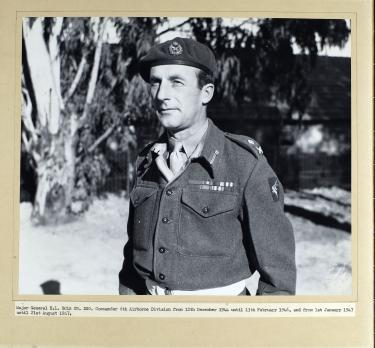

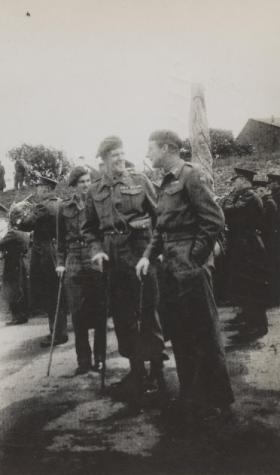
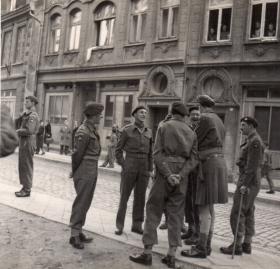
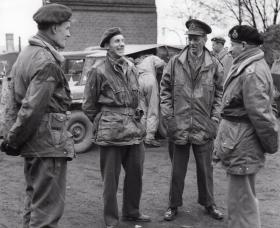
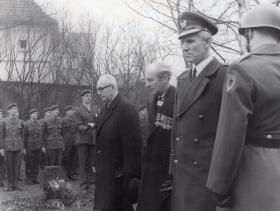
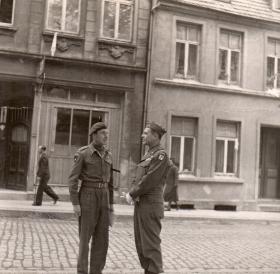
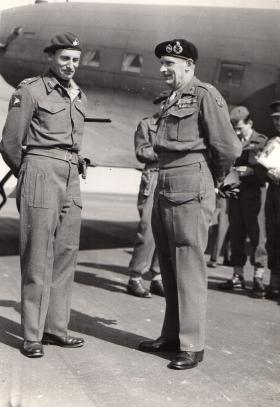
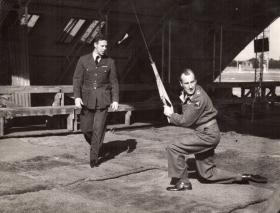
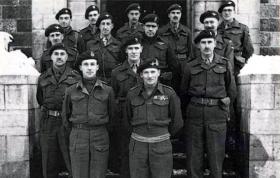
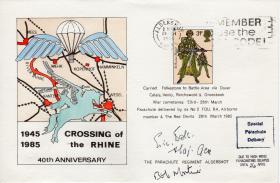
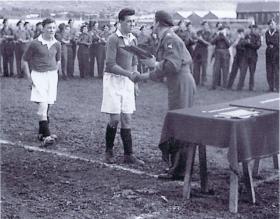
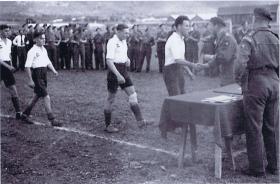
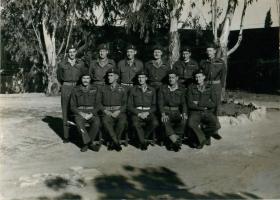
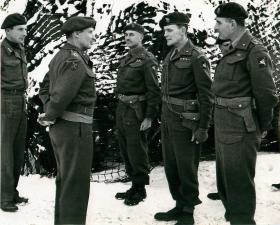
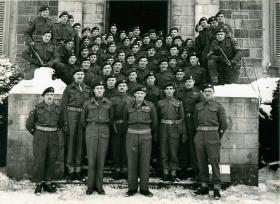
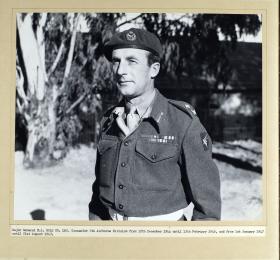
Latest Comments
There are currently no comments for this content.
Add Comment
In order to add comments you must be registered with ParaData.
If you are currently a ParaData member please login.
If you are not currently a ParaData member but wish to get involved please register.